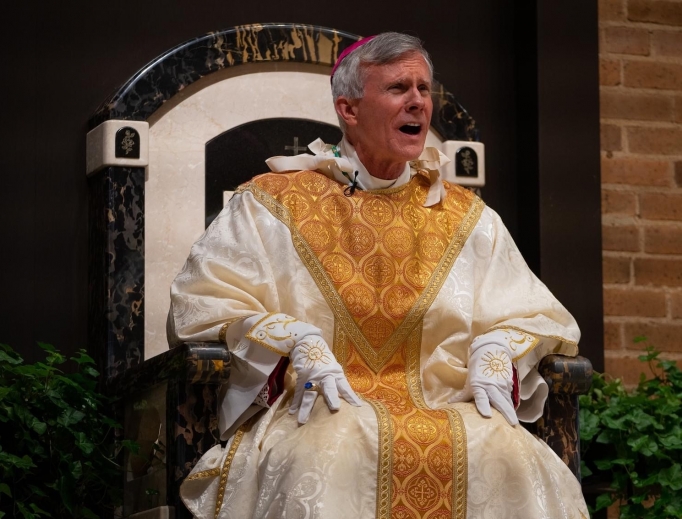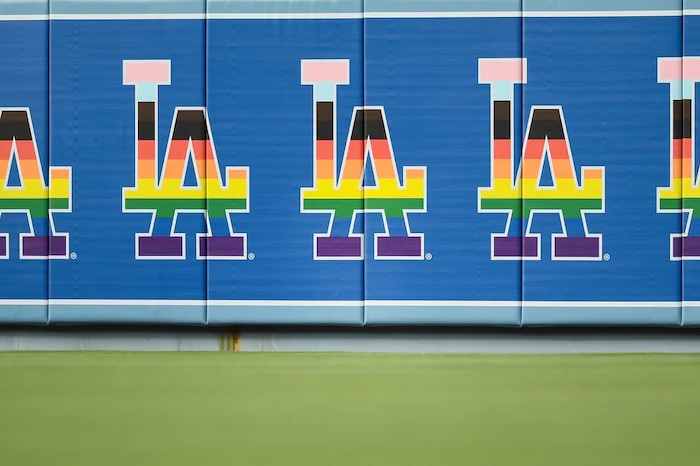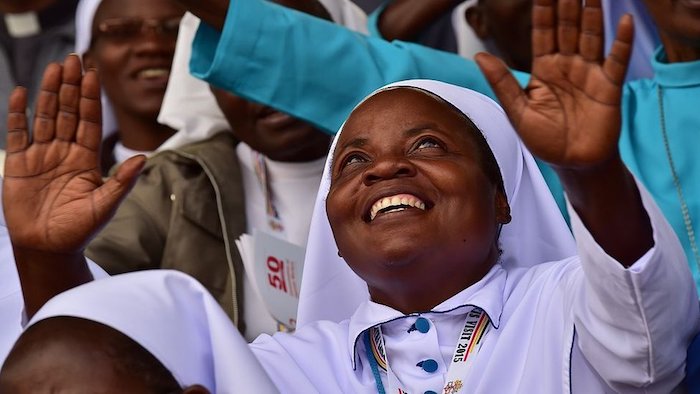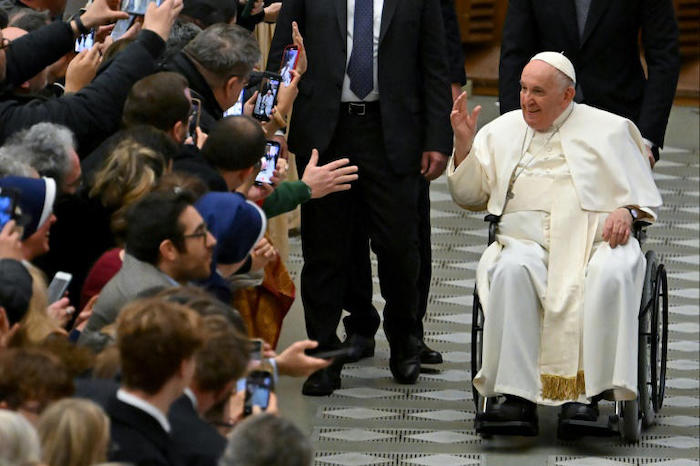
by Religion News Service
If Texas Bishop Joseph E. Strickland is known outside of his diocese for anything, it’s for controversy.
The conservative firebrand, who oversees the Diocese of Tyler, Texas, has sparked backlash from critics for everything from voicing support for priests who refuse to get vaccinated against COVID-19 to offering a prayer at a “Jericho March” event in the weeks leading up to the Jan. 6, 2021, attack on the U.S. Capitol. More recently, Strickland challenged Pope Francis, announcing on his Twitter feed that he believes the pontiff is “undermining the Deposit of Faith.” His efforts have inspired some detractors to call for Strickland’s resignation, while others have urged Vatican intervention.
But according to multiple sources, Strickland has already been on the receiving end of the Vatican’s ire for more than a year: He was chastised by a representative of the Holy See in 2021, they say — a move that simultaneously signals the potential for formal Vatican disciplinary action and exemplifies the difficulty of reining in a controversial cleric.
“(Strickland) doesn’t really care,” Barber said of the alleged encounter. “It’s the truth that sets us free. If he goes down because he’s speaking the truth, oh well.”
A separate source who is familiar with the meeting but who chose to remain anonymous, as they have not been given permission to discuss the matter publicly, told Religion News Service the incident took place in November 2021 at the annual USCCB meeting in Baltimore, Maryland. The source said the nuncio specifically confronted Strickland about his Twitter feed, which had garnered controversy at the time for, among other things, posts that opposed the three major COVID-19 vaccines distributed in the U.S. at the time.
Asked about the encounter via email this week, Strickland said he would “prefer not to comment.”
The nuncio’s office did not respond to multiple requests for comment.
For his part, Barber told RNS he did not wish to speak further about the incident and would not name the source of his information. Instead, he criticized Pope Francis, accusing him of being ambiguous about important moral questions and calling the pontiff a “disaster for the Catholic Church.”
Strickland would hardly be the first cleric in U.S. history to be reprimanded by the Holy See. In the 1980s, the Vatican’s Congregation for the Doctrine of the Faith — headed by then-Cardinal Joseph Ratzinger, who went on to become Pope Benedict XVI — launched an investigation into Archbishop Raymond Hunthausen, an outspoken liberal cleric and critic of nuclear power, who oversaw the Archdiocese of Seattle at the time. The Holy See ultimately appointed an auxiliary bishop to the region who shared authority with Hunthausen.
But it’s highly unusual for the public to learn about less formal admonishments doled out to bishops by Vatican officials behind closed doors. What’s more, Massimo Faggioli, a professor of theology and religious studies at Villanova University and an expert on U.S. Catholicism, said a nuncio privately dressing-down a U.S. bishop at a conference is particularly rare, and showcases the delicate situation facing modern popes when it comes to cowing outspoken, media-savvy clerics who buck the party line.
Strickland has become a popular figure in right-wing Catholic circles for his criticism of President Joe Biden and oppositional stance against COVID-19 vaccines, which includes expressing support for priests who have challenged their own bishops by refusing to get vaccinated. (Strickland’s position contrasts sharply with that of Pope Francis, who has advocated repeatedly for the use of vaccines, even calling them an “act of love.”) In addition to the Terry and Jesse Show, Strickland has appeared on a number of conservative and far-right Catholic websites, ranging from EWTN to Church Militant.
Church Militant also organized a protest outside the same November 2021 USCCB meeting where the nuncio is alleged to have confronted Strickland. Speakers at the event, where some participants waved anti-Biden “Let’s go Brandon” flags, praised Strickland from the stage. He also posed for photographs with staffers from Church Militant, an outlet that has railed against other bishops using language critics have decried as homophobic and racist.
Church officials wishing to curtail Strickland’s influence could take dramatic steps like they did with Hunthausen, Faggioli said, but “there’s no measure that can deprive him of the access to these various blogs or influencers” the bishop often utilizes to amplify his message.
“I believe that the fear is that, if he’s removed, his visibility will be amplified,” Faggioli said.
What’s more, if the alleged scolding was meant to cow Strickland, Faggioli said, it doesn’t appear to have had much of an effect. Since the 2021 meeting, the Texas bishop has been embroiled in multiple controversies over challenging the authority or rhetoric of church officials — be it his fellow bishops or the pope. And while Strickland’s much-maligned tweet about Pope Francis earlier this month was an attempt to distance himself from a podcaster who questioned whether Francis is, in fact, the pope, his effort still resulted in controversy.
“I don’t know how much that dressing down worked,” Faggioli said.
Complete Article ↪HERE↩!




